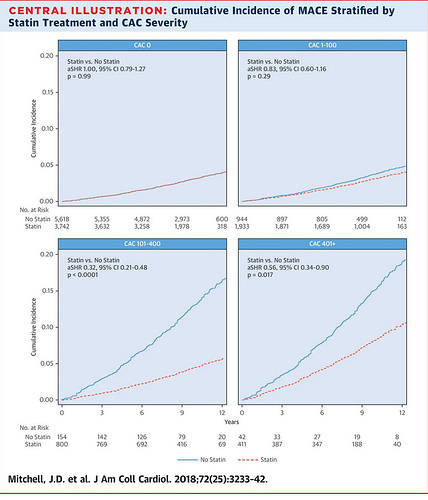That’s the same with any test, even blood tests. No test is 100% perfect. But a score of zero or one is basically the same, and both yield very low actual risk.
CAC scans are one indicator, just the best indicator right now. I’ve seen people with lipid values all over the map getting CAC scans that are all over the map: people with FH (familial hypercholesterolemia) getting zero scores; people with “perfect” lipids getting high scores.
As with everything, we need more data. We need people who take these before going low carb, then take them afterwards (I only found out about the scan recently, and you have to pay for it yourself, but I got mine done after 5.5 years low carb, but not before). We need people with varying levels of lipids to get them done over time. It would be great to see a class of people with “high” LDL-p for instance to see what happens. I have extremely high Lp(a), which would cause most cardiologists who knew about it to crap their pants, yet got a zero score. Maybe Lp(a) isn’t a great risk factor? Or maybe whatever I’m doing is counteracting that “deadly” Lp(a)?
But if you’re a Thomas Dayspring or Peter Attia or other lipidologist, you just BELIEVE that certain lipids are bad. If we can get enough data, maybe we can start changing their minds (though with those two, I don’t think so).
Anyway, CAC scans are just one more data point. They just happen to be the best data point right now to tell you actual risk, as LDL/LDL-p/Lp(a)/OxLDL, etc., are all just markers.

 ?”
?” 

